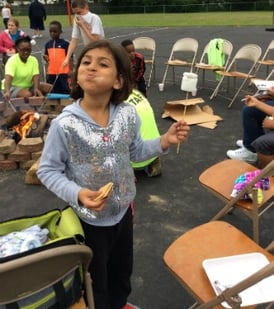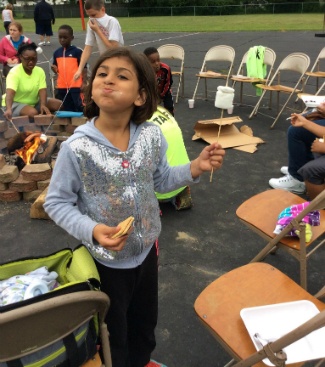 As your child’s social circle increases, so will his or her exposure to words and phrases that you find inappropriate. And, remember that your child is in an intense learning stage of life – so when he or she discovers that certain words get other people to react, this is fascinating! What power he or she wields!
As your child’s social circle increases, so will his or her exposure to words and phrases that you find inappropriate. And, remember that your child is in an intense learning stage of life – so when he or she discovers that certain words get other people to react, this is fascinating! What power he or she wields!
So, what do you do?
Manage your reactions
The reality is that your child will learn swear words – if not from friends and family, then from television shows, musical lyrics, video games and more. In fact, Psychology Today says that, by the time your child enters school, he or she will know 30 to 40 swear words. So, you need to accept that your child will learn these unacceptable terms and then decide how to manage the situation. Here are tips.
When your child swears or uses an inappropriate term, don’t laugh. That is positive reinforcement and will only serve as encouragement to do it again. If you become angry and react strongly, that’s still reinforcement.
Baby Center suggests demystifying the source of many terms that will appeal to your preschooler: that of bodily functions, especially elimination. If you accept toilet functions in a matter-of-fact way, then calling someone else a “poopy-head,” for example, won’t be as interesting to your preschooler. The site recommends a book titled Everyone Poops by Taro Gomi to “de-emphasize the forbidden (and thus endlessly alluring) nature” of this subject.
Create clean substitutions
The site reminds parents that children often experiment with words, just for fun – and so, if you can make saying “snoopy-nose” exciting to say, then your child will probably lose all interest in the more offensive term, “poopy-nose.” You can also create a term that’s acceptable for a child to use to express frustration (we all have them!). We know of one child who, several years ago, coined “What the kitty?” and his family still uses the phrase.
Be clear about limits
Let’s face it. YOU may know that swearing is inappropriate for your preschooler but, until you express it clearly, your preschooler may be confused – especially if a term is acceptable at the house of a friend. “John,” you might say, “you may hear other people use this term, even other kids, but it’s not okay for someone in our family to say.”
Positive Parenting Solutions offers the following consequences for continued use of a term:
- Once you’ve clarified that a certain word or term is not acceptable, turn and walk away from your child when used. (Horizon note: you may choose to use this strategy when at home, but it wouldn’t be appropriate or safe, for example, when you and your preschooler are in a store.)
- Require your child to come up with a substitute term and to use it throughout the day – and then teach the rest of the family how to use the substitute.
Watch your mouth!
If you tell your child that it isn’t appropriate to swear when angry, and then you do, your actions will speak loudly: “double standard.” Be sure to also speak respectfully to friends and family members, the clerk at the store, the police officer and everyone else you meet to reinforce your message about choosing and using positive language.
If you’re looking for a quality affordable preschool/child care program that provides the types of educational programs and enrichment experiences that help prepare your child for K-12, contact the Horizon Education Center in your neighborhood.







